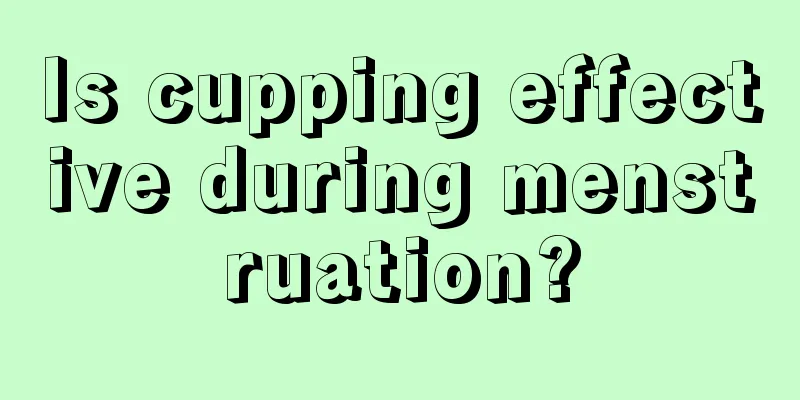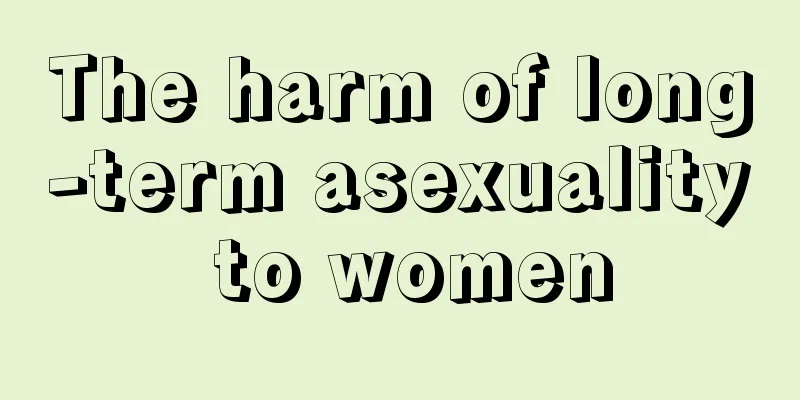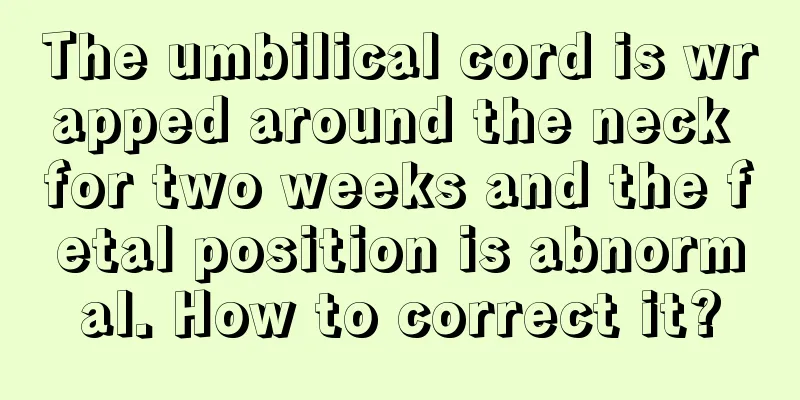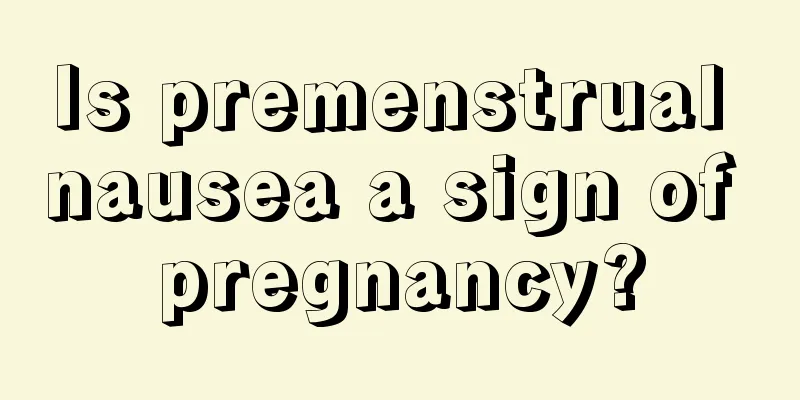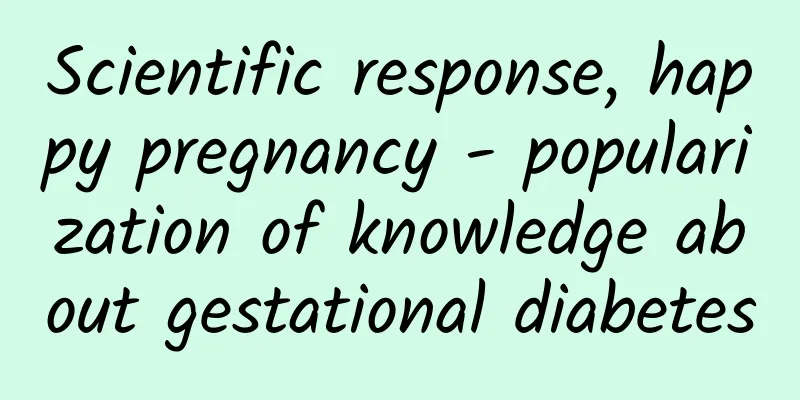What are the symptoms of ovarian failure?
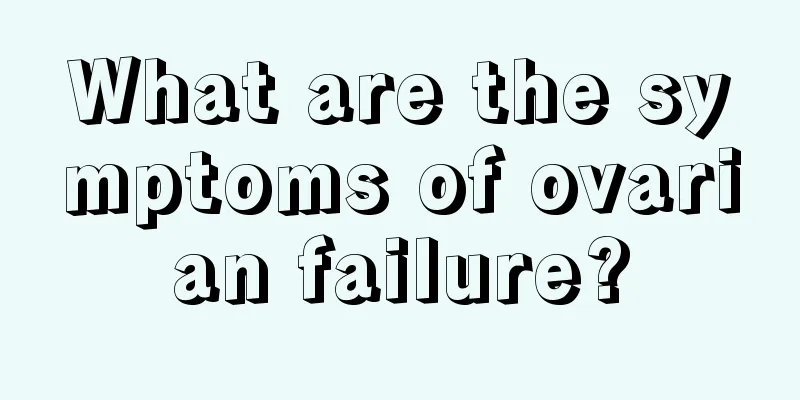
|
The ovaries are an important part of the female reproductive organs. They have many functions for women, such as synthesizing estrogen, secreting estrogen, and expelling eggs. Only when the female ovaries can function normally can they complete the task of passing on the family line. Because women usually do not pay attention to the care of their ovaries, they may suffer from ovarian failure. What are the symptoms of ovarian failure? Let's introduce them below. Typical symptoms:
1. Amenorrhea is divided into primary amenorrhea and secondary amenorrhea. Secondary amenorrhea occurs before the age of 40. There are no characteristic signs of menstrual abnormalities before amenorrhea in POF patients. Some women suddenly experience amenorrhea after regular menstruation, some experience amenorrhea after stopping birth control pills or giving birth, and some experience irregular menstrual cycles and periods before amenorrhea. 2. Infertility is the main reason for patients with premature ovarian failure to seek medical treatment and suffer. There are primary infertility and secondary infertility. 3. Symptoms of low estrogen. Symptoms of low estrogen are rare in patients with primary amenorrhea. If they occur, they are mostly related to previous use of estrogen replacement therapy. Symptoms of low estrogen are common in patients with secondary amenorrhea. [Other symptoms]
Concomitant autoimmune diseases include Addison's disease, thyroid disease, diabetes, lupus erythematosus, rheumatoid arthritis, vitiligo, and Crohn's disease. There are also insidious symptoms of adrenal insufficiency, such as recent weight loss, loss of appetite, vague abdominal pain, weakness, increased skin pigmentation, and salt cravings. treat [Treatment policy] Estrogen-progesterone replacement therapy, osteoporosis prevention, ovulation induction therapy, immunotherapy, donated egg embryo transplantation, etc. can be used as appropriate. [Drug treatment]
1. Estrogen-progesterone replacement therapy (HRT) Estrogen-progesterone replacement therapy is very important for young POF patients. It can relieve the symptoms of low estrogen and urogenital tract atrophy, prevent long-term complications, and reduce the risk of colon cancer by 37%. 2. Prevent osteoporosis In addition to HRT, ensure 1200 mg of calcium intake per day. Vitamin D 400~800IU/d, and engage in necessary physical exercise. 3. Ovulation induction therapy Generally, after HRT or GnRHa is used to suppress endogenous gonadotropin to a lower level, sufficient hMG/hCG is given to induce ovulation while monitoring by ultrasound. The dosage of hMG is required to be large and the duration is long. [Surgical treatment] 1. To date, donated egg embryo transfer is still the most effective treatment for POF patients to achieve pregnancy. 2. Ovarian transplantation. |
<<: What causes ovarian swelling?
>>: Low estrogen follicle development
Recommend
How to make meatball soup tender and smooth? What ingredients are added to make meatball soup more delicious?
Meatballs are very delicious for people who like ...
What is the reason for the dull pain on both sides of the woman's abdomen?
With the continuous improvement of living standar...
Pain in lower body after sex
For adult men and women, having sex is a normal p...
What is the reason for heavy menstruation?
I believe that many female friends will make spec...
What are the symptoms of vaginal leukoplakia?
Patients with vaginal leukoplakia will have sever...
How to treat yellow leucorrhea that is bean dregs-like
The leucorrhea is yellow and has a tofu-like cons...
What to do if a pregnant woman can't breathe
In life, many people pay more attention to the ph...
What is the reason for adult women to grind their teeth when sleeping?
Many people grind their teeth when they sleep. Wh...
What are the symptoms of premenopause in women?
When women reach middle age, their ovarian functi...
Will girls get flat chested if they train their chest muscles?
Whether it is men or women, health awareness is g...
Is it better to have an abortion or medical abortion when you are one month pregnant?
Women who become pregnant without prior consent n...
What are the consequences of obesity in women?
Obese women always have this experience in life. ...
During a painless colonoscopy, the patient suddenly vomited a lot, and the doctor saved his life with a plastic tube
In clinical work, every day is full of unknowns. ...
Vulva itching a little red pay attention to what
Some female friends may think that the vulva is v...
What is the meaning and symbol of the flower of smooth sailing? What are the benefits of the flower of smooth sailing?
The flower stems of the smooth sailing flower are...
